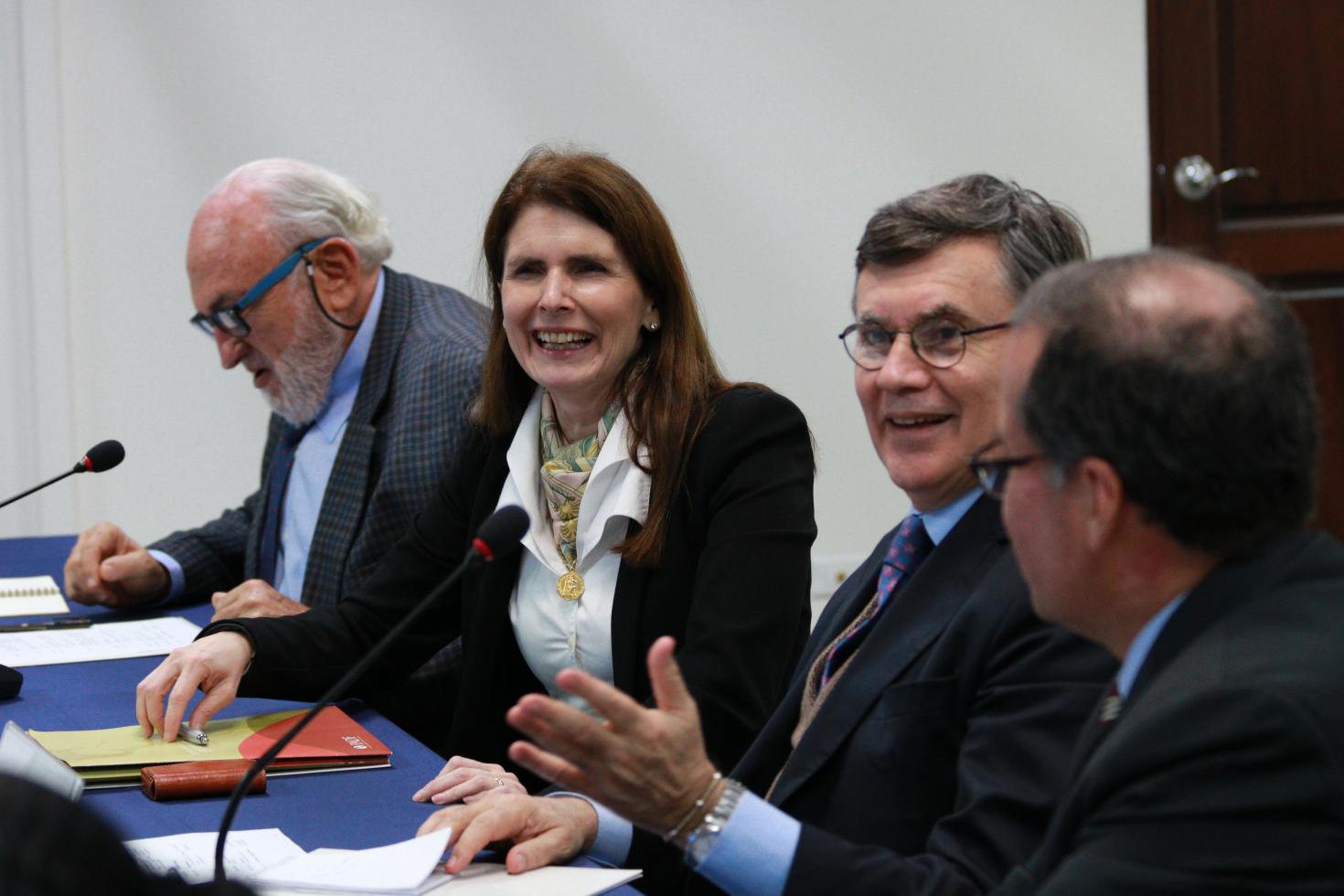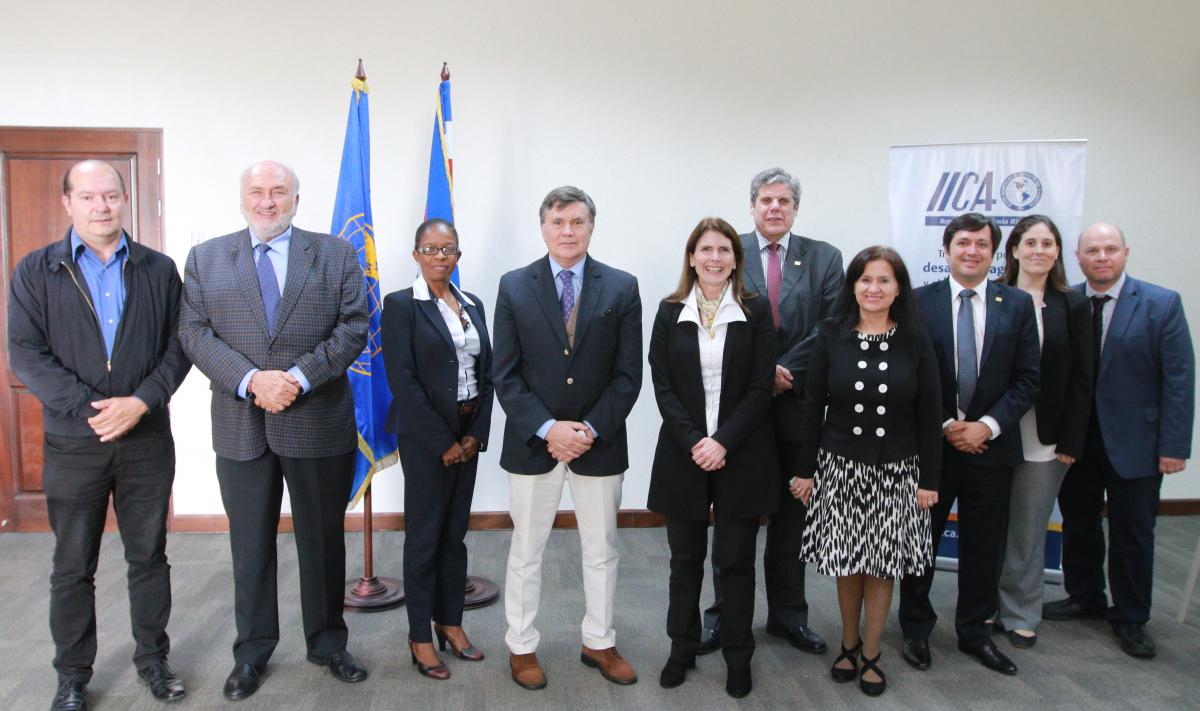Partnership between the Pan-American Development Foundation (PADF) and IICA to benefit vulnerable communities in the Americas

San José, 29 March 2019 (IICA). The Pan-American Foundation for Development (PADF) and the Inter-American Institute for Cooperation on Agriculture (IICA) will boost rural and agricultural development in Latin America and the Caribbean (LAC) by implementing joint actions to benefit vulnerable communities, such as migrants, women and young people from rural areas, people of African descent, and indigenous people.
The decision was the outcome of a meeting at the Headquarters of the specialized agricultural agency in Costa Rica, where a delegation from PADF—headed by Executive Director, Katie Taylor—met with authorities from the Institute, headed by Director General, Manuel Otero, to explore shared areas of focus.
The PADF-IICA partnership will promote inclusion, empowerment and innovation for vulnerable communities. The specific areas for action will include the Central American Dry Corridor, Colombia and Haiti.
PADF is the humanitarian arm of the Organization of American States (OEA). Established in 1962 through a special OAS agreement, the Foundation promotes social progress, strengthens vulnerable communities, responds to natural disasters and humanitarian crises, and champions human rights and democracy.
Some of the first initiatives to be introduced will involve the development of an agriculture-specific STEM program (STEM refers to the teaching of science-, technology-, engineering- and mathematics-related subjects), to attract and train young people, and support for projects that both institutions are carrying out in Colombia, Haiti and the Trifinio region. Approximately 750,000 people live in the Trifinio region - the tri-border area between Guatemala, Honduras and el Salvador.
Taylor remarked that, “Both of our institutions are attempting to assist rural and agricultural communities through the use of innovation, technology, and sustainable development tools. Our aim is to expand our network of contacts; to move away from traditional agriculture; and to tap into the biodiversity, bioecology, and the bioeconomy of the regions, focusing on young people—who represent the future—and on incorporating a gender focus. The Latin American and Caribbean region is home to 250 million people living in conditions of poverty, exclusion and vulnerability, and we are here to help them”.
During the meeting, both organizations also agreed to work together to obtaining funding to implement new projects for the benefit of the countries in the hemisphere.
PADF also expressed an interest in contributing to the European Union-IICA initiative in the Central American Dry Corridor, which is seeking to improve productivity and guarantee food security for small-scale producers of basic cereals.

Otero, on the other hand, stressed the fact that, “Since I assumed the leadership of IICA’s General Directorate, the Institute has pursued a very aggressive policy to forge strategic partnerships, and this partnership with the Pan-American Development Foundation is one noteworthy example, given the modern approach that you are taking to assist vulnerable communities in the American region. We have overlapping agendas and must gradually build the agriculture sector that we hope for, in the context of this technological revolution”.
In the area of agriculture, PADF is working on issues such as agroforestation, urban and peri-urban agriculture, and climate smart agriculture, always prioritizing the human dimension; whereas IICA’s technical cooperation roadmap focusses on five strategic areas: bioeconomy and production development; territorial development and family farming; trade and integration; climate change; natural resources and risk management; and agricultural health and food safety. Gender and youth and Innovation and technology are two cross-cutting issues that are also components of this strategy.
Taylor observed that, “We are problem solvers and natural partners, who share the same enthusiasm to transform lives through inclusion, the empowerment of people in the region, and capacity building - working hard and enjoying what we do to change the world”.
During her visit to IICA, Taylor was accompanied by PADF’s Regional Director for Mexico and Central America, Camila Payan, and by the Foundation’s Director of Socioeconomic Development and Institutional Strengthening, Gloria Acosta.
Video spanish only:
More information:
Beverly Best, Director of External and Institutional Relations, IICA.